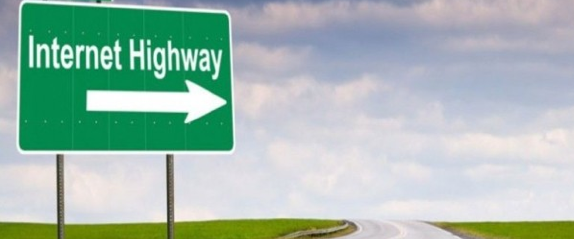
No longer an open road
Before yesterday, the internet was a five-lane, toll-free highway that rarely experienced congestion. That's all about to change, and here's why you should…
Before yesterday, the internet was a five-lane, toll-free highway that rarely experienced congestion. That's all about to change.
Say goodbye to equal access in sharing and consuming information on the web. A U.S. Court of Appeals decided that the FCC does not have the authority to enforce net neutrality on broadband providers.
What's net neutrality and how did the internet work before?
Before, broadband providers like Comcast and Verizon built, maintained and enforced speed on the internet highway, adding lanes when needed. They had to let everyone ride and go the same speed. All this was transparent and overseen by the FCC. But not anymore.
That's because a U.S. Court of Appeals said that broadband providers are not highways. They're not subject to the same rules that apply to phone carriers and public transportation providers, who have to let everyone use their services for the same price.
What's changed?
Now, broadband providers don't have to let everyone on their highway, and not everyone has to follow the speed limit. What's more, the transparency is gone. Without our knowledge, companies can manipulate internet traffic to their own advantage.
Instead of a freeway, the internet could become a web of tolls enforced by providers' own motives. Sites affiliated with the provider and those who can afford it may be allowed to travel in express lanes, while smaller sites like low-budget non-profits and those that the providers find threatening will be stuck in one pot-holed lane of traffic, slowing the speeds to load their webpages, stream their videos, fill out their forms and comment on their postings.
The providers could build more lanes so sites run faster, but why should they? They don't want competition. They want money and control.
So what does that mean for websites?
During elections, candidates who support broadband provider agendas may have smoothly operating websites, while unsupportive or even just small, third party candidates will have pages that take four times longer to load.
As a small business owner, sharing your website is a great way to advertise. But your future customers may give up on navigating your slow page and instead shop online at corporate giant, "Shopsmart," who's hashing out the big bucks for speed.
How will that affect me as a consumer?
You may abandon your favorite alternative or local news site because it's too frustrating to surf, while provider-owned "XYZ" streams unobstructed. Forget researching academic papers, searching for colleges or finding free interview tips and financial advice.
If you want all your favorite sites to run the same as they do now, you might need to start paying more to your broadband provider. Internet access is already expensive and limited to those who can afford it. Now, even your public library may have to go offline, barring access to those without home internet or devices to access free Wi-Fi.
So what's the future of the internet?
Who will be there to observe and enforce the speed limits and traffic patterns of the internet when broadband providers hide their practices behind their court-approved rights? Unless the FCC appeals and makes a convincing legal argument to the Supreme Court—no one.









LEAVE A COMMENT:
Join the discussion! Leave a comment.